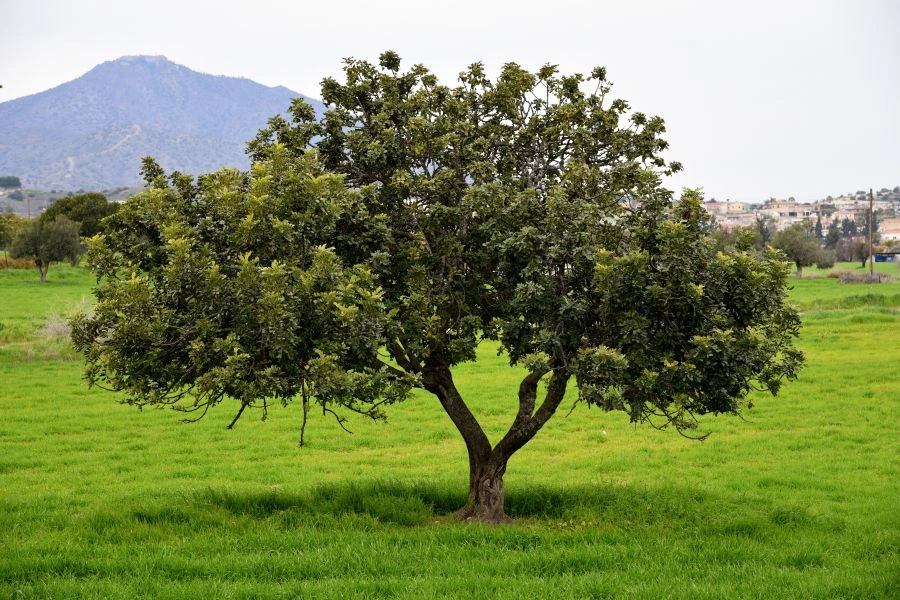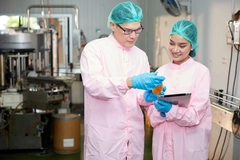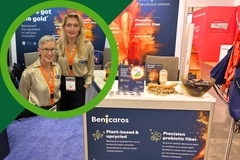
- Industry news
Industry news
- Category news
- Reports
- Key trends
- Multimedia
Multimedia
- Journal
- Events
- Suppliers
Suppliers
- Home
- Industry news
Industry news
- Category news
- Reports
- Key trends
- Multimedia
Multimedia
- Events
- Suppliers
Suppliers
CarobWay partners with GRA Nutra for exclusive US distribution of prebiotic ingredient
Key takeaways
- CarobWay has partnered with GRA Nutra as its exclusive US distributor to launch its first commercial product, CarobBiome, a prebiotic fiber derived from upcycled carob fruit pulp.
- CarobBiome, slated for rollout in 2026, offers 85% total fiber content to support digestive comfort, satiety, and metabolic health in demand on the US market.
- CarobWay leverages the drought-resistant, low-input carob tree to produce zero-waste, nutrient-rich ingredients, aligning sustainability with health benefits.

CarobWay has sealed an exclusive distribution agreement with GRA Nutra, a US developer and distributor of natural ingredients. The deal enables CarobWay to expand its carob-based product line into the US.
The company states that its production capacity is “ready to scale,” as it prepares to serve the US market next year. Its first commercial product, CarobBiome, is scheduled to roll out in 2026.
CarobBiome is a prebiotic fiber derived from upcycled carob fruit pulp. It is shown to promote digestive comfort, enhance satiety, and contribute to metabolic function.
The product is extracted through a proprietary method that utilizes only water and heat, resulting in a clean ingredient list.
“By integrating CarobWay’s responsibly produced, high-quality, carob-based ingredients into GRA Nutra’s North American portfolio, we enhance the value we can deliver to our customers across the functional food, beverage, and supplement industries,” says Lynda Doyle, CEO of GRA Nutra.
“I have known CarobWay’s co-founders, Udi Alroy and Guido Schaer, for many years, and they have a long history of bringing top-tier natural products into the market. I’m excited to work directly with them.”
She highlights CarobWay’s “rapid growth,” adding that the collaboration aligns with the companies’ shared vision for a more sustainable future.
Functional fibers
CarobBiome consists of 85% total fiber, with insoluble fractions to support gastrointestinal regularity and reduce bloating, and soluble parts to fuel beneficial microbes.
Innova Market Insights data on fiber developments indicates that one in three US consumers says they have “changed their diets for weight loss.” Prebiotics are increasingly popular for adding fiber, reducing sugar, and replacing fat.
 CarobWay says carob is a sustainable tree with fruits high in polyphenols, prebiotic fibers, vitamins, and minerals.These compounds foster the growth of beneficial gut bacteria, which in turn help produce short-chain fatty acids that support gut barrier function, facilitate blood glucose management, and enhance satiety.
CarobWay says carob is a sustainable tree with fruits high in polyphenols, prebiotic fibers, vitamins, and minerals.These compounds foster the growth of beneficial gut bacteria, which in turn help produce short-chain fatty acids that support gut barrier function, facilitate blood glucose management, and enhance satiety.
“CarobBiome addresses two everyday consumer concerns: digestive comfort and metabolic support,” says Udi Alroy, co-founder and CEO of CarobWay.
He adds that the ingredient is “powerful, yet very gentle on digestion,” making it suitable for people of all ages. “It has relevance across multiple health categories, including metabolic and blood sugar balance, gut health, sports nutrition, and weight management.”
The product also features a neutral flavor and is heat-stable, allowing for integration into various applications, including snacks, baked goods, meal replacements, and shakes.
Sustainability meets health benefits
CarobWay specializes in creating nutritional solutions that unlock the full potential of the carob fruit. The vertically integrated company cultivates and innovates specialty carob-sourced ingredients.
The company notes that these fruits are rich in naturally occurring polyphenols, prebiotic fibers, vitamins, and minerals, in addition to D-pinitiol, which it describes as a “known anti-diabetic compound.”
“This partnership with GRA Nutra will be instrumental in effectively introducing our carob-powered portfolio into the US functional food and dietary supplement space,” says Alroy. “Its strong product development and commercialization expertise will further accelerate our growth.”
In addition, the carob tree offers sustainability benefits. It is a drought-resilient perennial that requires minimal water and inputs, utilizes marginal lands, naturally resists pests, and contributes to carbon sequestration and long-term soil health.
CarobWay states that CarobBiome has a zero-waste footprint, as the carob seeds and other fractions are valorized into additional ingredients.

















